





This page provides links to various associations and organisations worldwide, relating to different subjects on oil spill preparedness and response. Links to publications and technical libraries are also included.
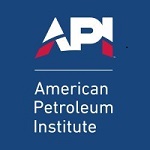
The American Petroleum Institute (API) is the only national trade association representing all facets of the oil and natural gas industry.
API’s more than 625 members include large integrated companies, as well as exploration and production, refining, marketing, pipeline, marine businesses, and service and supply firms.
API has developed numerous technical reports on spill prevention and response. Their library is constantly updated with the latest information on innovation and methods used by the industry for oil spill prevention and response.
Additionally, API also hosts the Oil Spill Prevention and Response website which promotes and showcases the commitment of the U.S. oil and natural gas industry to meet the nation's energy needs, while maintaining safe and environmentally sound operations. The website provides information on oil preparedness and response options, and contains numerous short video clips to demonstrate how oil spill clean-up is conducted.

ARPEL is a non-profit association gathering oil and gas, and biofuels sector companies, and institutions, in Latin America and the Caribbean. Founded in 1965 as a vehicle of cooperation and reciprocal assistance among sector companies, its main purpose is to actively contribute to industry integration and competitive growth, coupled with sustainable energy development in the region.
ARPEL published several best practice guides related to oil spill management. One of their more popular tools is the Oil Spill Response Planning and Readiness Assessment Manual and its Readiness Evaluation Tool for Oil Spills (RETOS™).

The “Centre de documentation, de recherche et d’expérimentations sur les pollutions accidentelles des eaux” (Cedre) is a not-for-profit organisation based in Brest, France. It provides advice and expertise in the management of accidental water pollution.
Cedre has published various operational guides providing information on different topics for tactical response managers and decision-makers. These documents are based on Cedre’s expertise and are available to download for free.
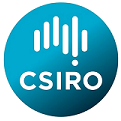
CSIRO is an Australian Government corporate entity, established with the purpose and function to carry out scientific research, and to encourage or facilitate the application or utilisation of the results of such research.
In 2016, CSIRO published the Oil Spill Monitoring Handbook to provide guidance to the Australian maritime sector (ports, shipping and terminals), to determine the necessary monitoring that should be undertaken following the accidental release of oil or other petroleum-based products into the marine environment.
Other research papers and publications are also available from their website.
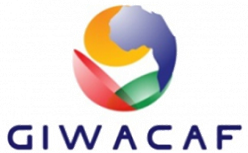
Launched in 2006, the Global Initiative for West, Central and Southern Africa (GIWACAF Project) is a collaboration between the IMO and Ipieca to enhance the capacity of countries to prepare for, and respond to marine oil spills. GIWACAF is one of the regional groups under the Global Initiative (GI) umbrella.
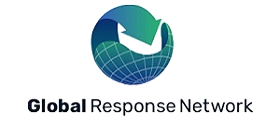
The Global Response Network (GRN) comprises organisations from around the world who specialise in oil spill response. Their combined operational footprint covers a large part of the planet, with extensive experience from tackling many of the most significant oil spills.

The International Maritime Organization (IMO) is a specialised agency of the United Nations.
It is the global standard-setting authority for the safety, security and environmental performance of international shipping. The main role of the IMO is to create a regulatory framework for the shipping industry that is fair and effective, universally adopted and universally implemented.
IMO publishes technical papers on pollution preparedness and response for the marine environment.
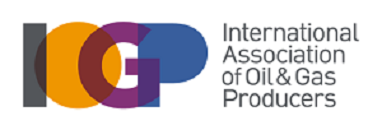
The International Association of Oil & Gas Producers (IOGP) is the voice of the global upstream industry.
The association serves industry regulators as a global partner to improve safety, environmental and social performance of the sector. They also act as an uniquely upstream forum, through which their members identify concerns, and share knowledge and good practice to achieve improvements in health, safety, environmental, security and social responsibility. Publications from IOGP are available at this link.
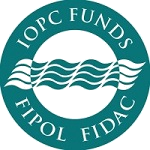
The International Oil Pollution Compensation Funds (IOPC Funds) provide financial compensation for oil pollution damage that occurs in member states, resulting from spills of persistent oil from tankers.
The IOPC Funds publish annual reports and brochures on various dimensions of the liability and compensation regimes. These publications are available to download individually, or can be viewed collectively as a PDF flipbook. Specifically, a 'Claims Information Pack' has been developed to assist claimants in a Member State following an oil spill incident.
_large.png?cb=1672723445)
Ipieca develops, shares and promotes good practice and knowledge to help the industry improve its environmental and social performance. It is a not-for-profit association that provides a forum to encourage continuous improvement in industry performance.
It is the industry’s principal channel of communication with the United Nations, and the only global association involving both the upstream and downstream oil and gas industry.
Ipieca has published different guides, tools and reports on oil spill preparedness and response, including the IPIECA Oil Spill Report Series, produced between 1990 and 2008.
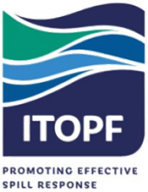
ITOPF is a not-for-profit marine ship pollution response organisation. They have devoted efforts to develop a wide range of technical services and promote effective response in the marine environment. The five key services that they offer are: spill response; claims analysis; damage assessment; contingency planning; training and information.
ITOPF has, over the years, produced a series of seven films titled 'Response to Marine Oil Spills', 17 Technical Information Papers (TIPs), and numerous papers and presentations for the response community. They also maintain a unique database of tanker spills from 1970 onwards, and provide specific information on spill response arrangements and resources in maritime states in their series of Country and Territory Profiles. Their publications are found here.

The Mekong River Commission (MRC) is an inter-governmental organisation which works directly with the governments of Cambodia, Lao PDR, Thailand and Viet Nam to jointly manage the shared water resources and the sustainable development of the Mekong River.
Numerous publications are publicly available on the the website of MRC; these span key subjects on Integrated Water Resources Management (IWRM).
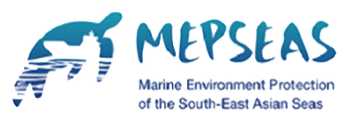
Administered through the IMO, with funding from Norad, the Marine Environment Protection of the South-East Asian Seas (MEPSEAS) Project focuses on enhancing capacity of participating ASEAN Member States to address high-priority marine environment issues related to ships and shipping - in particular, the implementation of four of IMO's key international environmental conventions - MARPOL Convention; Anti-Fouling Systems Convention; London Convention and Protocol; and Ballast Water Management Convention.
(The project has since concluded)
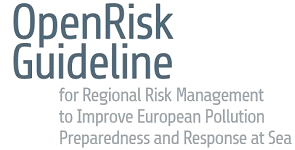
'OpenRisk' was a two year EU project to enhance methods for maritime risk assessments on accidental spills, led by the Baltic Marine Environment Protection Commission - Helsinki Commission (HELCOM).
Regional cooperation initiatives have been long been established between EU Member States to improve pollution preparedness and response over larger sea areas. In context of these cooperation agreements, several regional risk assessment initiatives were implemented.
Noting the above, shortcomings were identified in existing practice in risk-informed decision making, including: i) lack of transparency in the methodological basis of tools used; ii) lack of comparability in risk assessments across geographical areas and over time; iii) high costs of implementing regional risk assessments; and iv) challenges in implementing risk assessment results.
The 'OpenRisk' project sought to address these shortcomings by focusing on two aspects of effective risk management: i) providing guidelines for implementing regional risk management, targeted at pollution preparedness and response authorities; and ii) providing a set of open-access risk analysis tools to facilitate transparency and comparability in risk assessment results.

The Oil Spill Preparedness Regional Initiative (OSPRI) for the Caspian and Black Seas, and Central Eurasia was established by a group of oil companies. Administered through Ipieca the aim of OSPRI is to encourage and support industry and governments to work cooperatively, promoting the adoption of proven, credible, integrated and sustainable national, regional and international oil spill response capability.

The IPIECA-IOGP Oil Spill Response Joint Industry Project (OSR-JIP) was set up to implement learning opportunities, in respect of oil spill preparedness and response, following the April 2010 well control incident in the Gulf of Mexico. It covered topics that are broadly applicable both to exploration and production, as well as shipping and transportation activities.
As part of this effort, the OSR-JIP produced more than 20 Good Practice Guides. These guides update and replace the well-established Ipieca Oil Spill Report Series, published between 1990 and 2008.
This area of work has now been fully absorbed into Ipieca and IOGP. Please visit their sites for more information.

Oil Spill Response Limited (OSRL) is the largest international industry-funded oil spill response cooperarive with a global remit. They are wholly owned by their industry members, which represent the majority of global oil production.
Their technical library contains case studies, field guides, papers and other information on oil spill preparedness and response.
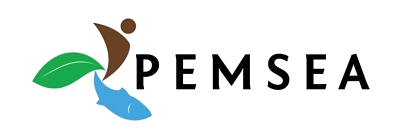
Partnerships in Environmental Management for the Seas of East Asia (PEMSEA) provides the coordinating mechanism to implement the Sustainable Development Strategy for the Seas of East Asia (SDS-SEA). It carries a mission to foster and sustain healthy and resilient coasts and oceans, communities and economies across the Seas of East Asia through integrated management solutions and partnerships.
Publications by PEMSEA include print and electronic materials focusing mainly on the subjects of sustainable development, environmental management, integrated coastal management (ICM) and coastal zone management, etc.

The Regional Technical Advisory Group (RITAG) comprises eight Oil Spill Response Organisations (OSROs) from various Asian countries. The group meets annually, in an exchange which blends topics aligned to international themes, with focus on subjects of regional interest to improve oil spill preparedness and response.
RITAG seeks to provide s a platform to facilitate cooperation between its members, in the spirit of the tiered response approach adopted by the industry, and the sharing of technical knowledge, best practice and oil spill response experience.
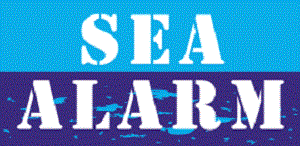
Sea Alarm was established in 1999, with the goal of creating a more professional and coordinated network of European oiled wildlife responders. Today, Sea Alarm is focused on expanding the development of oiled wildlife preparedness and response capabilities throughout the world.
Working in close collaboration with NGOs, government authorities, and the oil and maritime industries, Sea Alarm initiates and facilitates strategic preparedness activities for oiled wildlife response. The have published a series of Country Wildlife Response Profiles, and provide access to a number of guidance documents on Oiled Wildlife Response.
The Sea Grant programs of Texas, Louisiana, Mississippi-Alabama, and Florida are university-based initiatives that support research and education to enhance economic opportunities, while conserving coastal resources in the Gulf of Mexico region.
Their publications are available from their website.